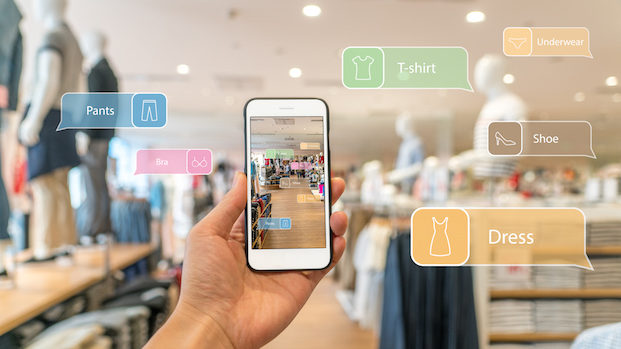June 2018
Use your own strengths

The large online retailers are growing steadily. Amazon already ranks second among the most valuable companies in the world after Apple. These large retail companies provide their services worldwide and can thus take advantage of economies of scale in logistics and purchasing. At the same time, they can avoid the investment, rental and personnel costs for operating stationary shops. This often allows them to offer lower prices. However, despite all efforts to individualise offers, they cannot compensate for two advantages of stationary retail outlets: personal customer care and location-based services. Both of these are not new, but have always formed the basis for success in retail trade. In this way, retailers cannot only determine the preferences of the individual customer in a personal talk, but even adapt their offer to the specific situation. This ranges from ice cream vendors on the beach to car dealerships with luxury brands in a region with high purchasing power. In the course of digitalisation, however, much more data is now available and this can be evaluated specifically and in detail with the help of software for use in marketing. This forms the basis of geomarketing and location-based services, which can be used profitably in various forms for stationary retail.
From little shops...
Even for small shops, location-based services could prove worthwhile. It is usually too time-consuming for each retailer to develop their own app, but large cities or holiday regions often have offerings that cover a wide range of offers. These are provided, for example, by the responsible tourist information office or private companies. Even a simple entry can be enough to draw the attention of visitors or residents to your shop as soon as they are nearby.
Integration in search functions for shopping offers - from the website of the city or region to Google - should also be checked and used. In addition, Facebook or Google also offer advertising options for even the smallest budgets, with which selected groups of buyers can be targeted at a local level. Those who cannot be found online will be reduced to selling to regular customers and a decreasing number of walk-in customers.
... larger stores...
Big retail outlets should also check whether indoor navigation is a worthwhile investment. New customers - or, after restructuring, even regular customers - often feel lost in huge shopping halls. If the information desk can't be found or no one is there, they often go home or to another retailer without shopping. In this case, a push notification with reference to an app can be helpful. Potential customers can then quickly find the desired products using an up-to-date site plan, a reliable search function and a route description.
... and retail chains...
Location-based services are even more interesting for retail chains. They can strengthen customer loyalty even further by integrating their subsidiaries in an app, either in their own country or even worldwide. Regular customers can then even be notified of nearby outlets of their favourite retailer or brand shop when travelling. Coupons, bonus programs or individual additional offers are particularly suitable in such cases. In addition to this, "brand fans" are often willing to receive push notifications informing them about new offers or a nearby store.
... to shopping centres...
Location-based services are particularly interesting for shopping centres. They often have returning customers who want to be constantly informed about new stores or promotional offers. Visitors can find out the latest news from the moment they enter the centre or come within proximity of the shop. The operator can measure and analyse visitor flows to optimise the distribution of shops or the signage and positioning of information boards. The owners of the shops find out how many visitors are in the shops at what times. In addition to this, they can send targeted sales incentives if, for example, a customer stays in a department for a longer period on time.
... and trade fairs.
Trade fair operators now offer a wide range of digital advertising options for exhibitors, many of which also include location-based services. A Navigator app in combination with an iBeacon, which is a small transmitter positioned at the stand, enable exhibitors to directly provide visitors in the vicinity with digital data. The iBeacon sends a push message to the visitor's smart phone as soon as they are near the stand. In this way, the companies can attract attention in a targeted way and enable visitors to access brochures, videos and product information directly from their smart phones.
Estimating the costs and benefits
Which location-based services are most suitable has to be decided in each individual case based on the different requirements and possibilities that retailers have. In light of the increasing competition with online retailers as well as increasing digitalisation and ever cheaper and easier-to-use technologies, location-based services are paying off for more and more areas of application. In case of doubt, an experienced service provider can offer valuable advice and support.
Tags
- Digital Marketing
- Digital Trends